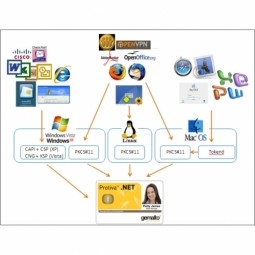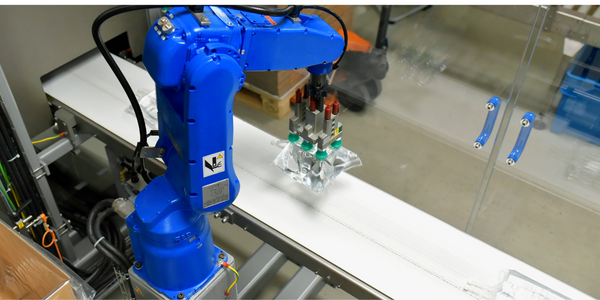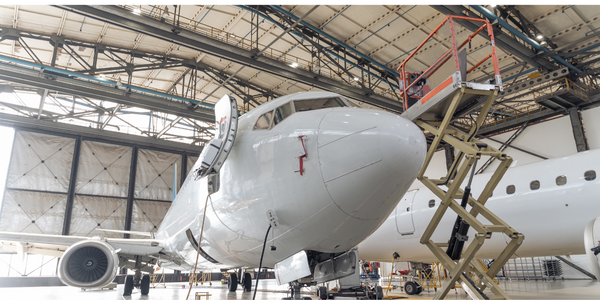公司规模
Mid-size Company
地区
- America
国家
- United States
产品
- Ross ERP
技术栈
- Enterprise Resource Planning (ERP)
实施规模
- Enterprise-wide Deployment
影响指标
- Productivity Improvements
- Cost Savings
技术
- 功能应用 - 企业资源规划系统 (ERP)
适用行业
- 生命科学
适用功能
- 离散制造
- 质量保证
用例
- 自动化制造系统
- 库存管理
服务
- 系统集成
关于客户
Mission Pharmacal 是一家总部位于德克萨斯州的公司,由药剂师 HN Walsdorf 于 50 多年前创立。该公司致力于确保其药品采用最优质的原材料制造。Mission Pharmacal 以其创新产品而闻名,例如 CITRACAL® 产品系列,其中包括用于骨质疏松症和产前护理的产品。该公司还将大量资源用于治疗和预防肾结石疾病的疗法和诊断程序的研究和开发,从而推动了几种知名药物的上市。该公司现已由创始家族的第三代人掌管,在大圣安东尼奥地区拥有三个办事处。其位于德克萨斯州伯恩的最新工厂旨在成为该公司在研发以及生产和分销更优质药物方面持续卓越的中心。
挑战
Mission Pharmacal 是一家领先的药品和营养产品生产商,在制药行业面临着日益激烈的竞争压力。由于与供应商和客户缺乏合作,该公司难以确保准确履行订单并按时发货。此外,该公司在制造流程之间的可视性有限,这使得在整个生产过程中难以管理材料。成本核算也是该公司的一个关键问题,因为它将产品销往消费品包装市场。此外,该公司需要提高其产品的批次追踪能力,以防产品被食品和药物管理局 (FDA) 召回或审计。
解决方案
为了有效竞争并解决集成和库存控制问题,Mission Pharmacal 用 Ross ERP 替换了其现有的企业软件。Ross ERP 解决方案使 Mission Pharmacal 能够简化运营、提高效率并提高生产力。该公司在各个方面都取得了可观的进步,包括整体市场竞争优势、增强的可视性和增强的库存控制。该公司能够更轻松地与供应商和客户合作,以协调履行期望并通过全面规划降低成本。通过简化运营,Mission Pharmacal 能够支持新产品和现有产品。通过整合整个公司的不同信息系统,Mission Pharmacal 能够 100% 地了解业务的制造方面。通过实施库存控制流程,该公司能够准确地管理整个产品生命周期 - 从原材料到成品。
运营影响
数量效益

Case Study missing?
Start adding your own!
Register with your work email and create a new case study profile for your business.
相关案例.

Case Study
Corporate Identity Solution Adds Convenience to Beckman Coulter
Beckman Coulter wanted to implement a single factor solution for physical and remote logical access to corporate network. Bechman Coulter's users were carrying smart card badges for doors, but also needed a one-time password token to access to our corporate network when they were not in the office. They wanted to simplify the process.

Case Study
Embracing Business Success in Real Time
· Increase control over growing Big Data to improve business decisions · Manage data for 28,000 biotechnology stockkeeping units in the fields of microbiology, molecular biology, animal cell cultures, plant tissue cultures, and lab ware for laboratory chemicals · Accelerate report generation and analysis with real-time data

Case Study
Flow Robotics: Scaling Up Production and Accelerating Product Development with IoT
Flow Robotics, a Danish manufacturer, developed flowbot™ ONE pipetting robots to alleviate the strain on bioanalysts in life-science laboratories and hospitals across Europe. These robots were designed to automate part of the testing process, speeding up the time it takes to produce results and reducing pressure on staff. However, the company faced challenges in scaling up production and accelerating product development. High workloads and physically challenging conditions have long been an issue for laboratory professionals. Flow Robotics estimates that around half of medical lab technicians carry out the same arm movements for at least a quarter of their working day. The American Society for Clinical Pathology reported that 85% of laboratory professionals feel burnt out; 36% struggle with inadequate staffing; and 32% face a heavy workload and pressure to complete all testing on time.
Case Study
Material Intelligence at Ethicon: Sustaining Medical Device Manufacturability and Improving Patient Care
Ethicon, a world-class medical devices company, faced several challenges in its operations. The rapid selection of manufacturing materials compliant in global markets was critical to assure patients, practitioners, and purchasing organizations of the biocompatibility of their medical devices. Ensuring supply chain continuity and minimizing risks of obsolescence for medical devices due to regulatory changes were also crucial in meeting Ethicon’s ongoing commitment to maintaining patient care. Furthermore, the engineers at Ethicon were developing the next generation of medical devices and needed to access historical material data to accelerate new product development. The process of centralizing and digitalizing its materials information was a significant challenge that Ethicon needed to overcome.

Case Study
Revolutionizing Aerospace Industry with 3D Printing: A 63% Lighter Titanium Part
GE Aviation, a renowned name in the aerospace industry, recognized the potential of 3D printing technology in transforming the sector. The primary challenge was to reduce the weight of the aerospace parts, which would directly impact the fuel costs. A lighter airplane would mean lower fuel consumption, leading to cost savings and a smaller carbon footprint. However, achieving this weight reduction without compromising the strength and functionality of the parts was a significant challenge. Traditional manufacturing methods were not able to provide the desired weight reduction while maintaining the required stiffness and strength of the parts. The challenge was to find a solution that could create strong, light, and functional aerospace parts.
Case Study
IWT's Transformation: Customizing with Efficiency in IoT
IWT, a company specializing in the design, manufacture, and installation of washing systems for the life sciences and pharmaceutical industries, faced a significant challenge in managing its wide product portfolio. The company manufactures 45 different models, 60% of which are customized to some degree. This high level of customization, combined with limited production quantities, necessitated a controlled process for managing the release of engineering changes. The goal was to achieve efficiency, reduce process time, and better coordinate production throughout the organization. The need for strict compliance in heavily regulated industries further complicated the situation. IWT's existing PLM journey with Dassault Systèmes’ SOLIDWORKS for 3D CAD and Enovia for managing CAD data and Bills of Materials (BOMs) was proving inadequate. The system had limited part classification, no workflow, and no tool to ensure data consistency. The management of non-CAD documents was also a challenge, with information often difficult to find and access.







